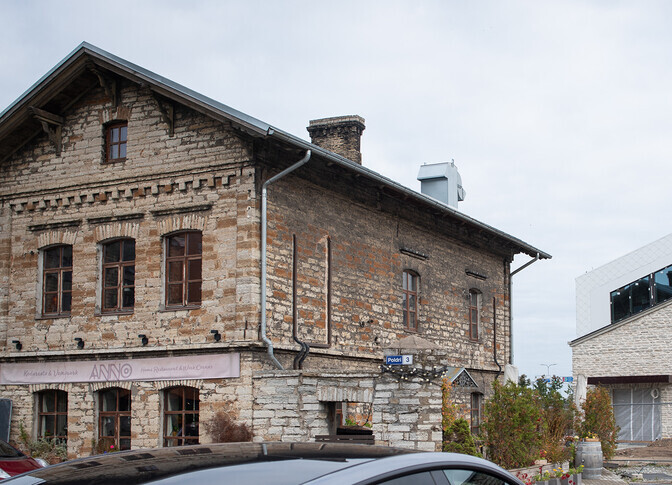A business incubator set up by the City of Tallinn is soon to move into premises which it has bought, at a price-tag of €6.2 million.
Up to now, the incubator had worked out of rented space, but with the move will itself be letting out commercial space to other businesses.
Some market experts have pointed out that the city could have obtained premises for the incubator at a lower price, given the oversupply of commercial space in a sluggish economy and with the popularity of remote working.
Reconstruction to the historic limestone building on Poldri 3, adjacent to Reidi tee and the Nautica shopping mall, has been underway for some time.
The incubator, which supports and assists creative and circular economy enterprises, is set to open within months.
Until now, the business incubator had been operating in rented spaces.
Anu Lõhmus, who heads up the facility, says getting its own building is the result of several circumstances coming together.
“The City of Tallinn had a disused building of environmental value, part of the Uus-Hollandi complex, which it was practical to preserve and restore. We drew up a business plan on how the incubator could, in addition to its incubation activities, also offer other services and serve the public interest,” Lõhmus explained.
The incubator will continue work in the renovated building.
Around 280 square meters of space is being designated for conferences and seminars, while roughly 220 square meters of smaller office space is intended for commercial rental.
“Since we won’t be using all the office space ourselves, we can take in interesting companies that fit our concept and will pay market-based rent, with that helping to cover the building’s general costs,” she went on.
At the same time, central Tallinn currently faces an oversupply of office space.
Kirill Vigul, CEO of 1Partner Commercial Real Estate, told ERR that he knows too little about the decision to establish the business incubator one way or another, but noted the city could certainly find comparable premises on the rental market for less than six million euros, due to this glut of supply.
“A new office building always creates vacant space in older buildings. That’s a hard and fast rule. For example, when Swedbank moved into its new building, that freed up several premises. Arter has also attracted new tenants, whose previous offices still stand empty. In a few years, when SEB moves into its new building, their current one will also be left vacant,” Vigul noted.
Vigul outlined the reason for the surplus of office space in the city center is that the economy is no longer growing at the same rate it had. The trend towards remote working which began during the pandemic has also meant firms generally require less office space than before, he added.
Tallinn’s director of entrepreneurship Kalle Killar said the city only intervenes where there is market failure; the incubator’s rental space is intended specifically for companies operating in that field, he noted.
Killar said working from rented spaces had placed quite a few limitations on the incubator’s activities and the success of its programs, up to now.
“With rental premises, we always had to take into account space limitations. To be able to offer flexible short- or long-term spaces to companies participating in our incubation programs, we would need to maintain constant vacant readiness. However, when we have our own premises, we can be much more flexible and ensure continuous use, generating additional income for the city that can be used to provide better services for companies,” Killar said.
The business incubator is a city-established support center which helps start-ups grow by providing affordable workspaces, mentoring, training, and networking opportunities. Through it, the City of Tallinn aims to mitigate startup risks, support job creation and innovation, and promote the development of the creative and circular economy in the capital.
—
Follow ERR News on Facebook and X and never miss an update!
